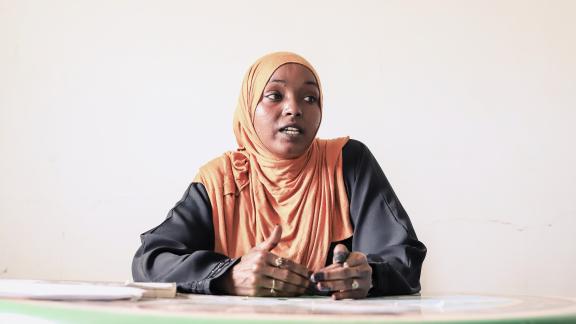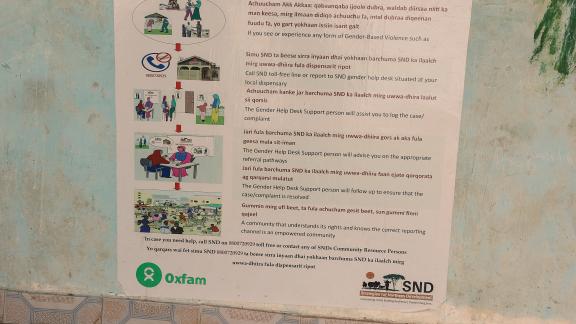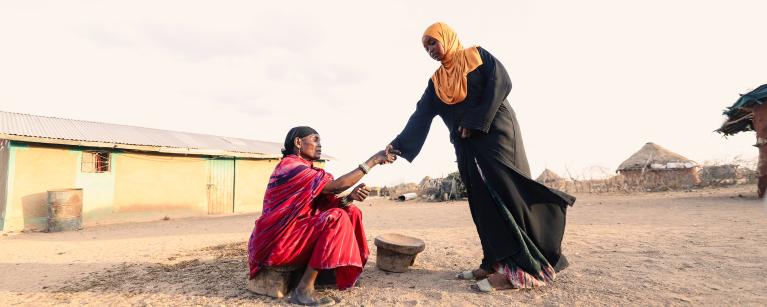Culturally, women and children are responsible for ensuring they take the animals out in search of pasture. They also are responsible for ensuring the households are running well. They may seem like simple tasks but they are not. It is not easy, but the women in these communities are nothing short of heroes. They juggle so much in the short hours of the day.
Children with big feet. This is a term used to describe women in the community she lives in. Except she is just a child and no she doesn’t have big feet. Imagine being 12 years old and being married off to a man, almost 30 years your senior. Yet you are expected to carry out the duties that are strenuous, even to older women. She was just 12 years old when her parents married her off to one of the oldest men in the village.
Since she had had her first period, this was acceptable culturally. Her parents were given a hefty reward of camels and goats which is equivalent to wealth in the community. So nobody took issue with the fact that the girl was young and needed to go school.
The women watched in hushed tones as she was escorted out of her parents home, kicking and screaming, knowing that she had been traded off to a monster. Her now husband did not even wait for her to get home before he gave her a proper thrashing for what he considered ‘ungrateful behaviour’ because how dare she cry?
Her mother watched helplessly as culture dictated the fate of her daughter. The community members slipped back into their manyattas, all of them tongue-tied by cultural norms and others quietly disgruntled because the same fate had befallen them. They know how this story ends and it does not make for a very interesting read.

Leila Abdirahman, Rawana Community Health Champion, at the Gender Help Desk at Rawana Community Health Dispensary in Rawana, Marsabit. Photo by Mark Wahwai.
One day the young girl walked out of her manyatta with bruises on her back and face. At this point the women in the community had undergone gender training, but they remained hush hush about this young girl from fear of being excommunicated. They helped her nurse her wound and sent her back
into the lion's den.
A week later the man married to this girl, tried to espouse another young girl and at this point, nothing could stop the women from speaking up! They rushed to the gender desk at the community health centre and reported to Leila Abdirahman, the Community Health Champion, and her partner who rushed to the village and rescued the child with the help of the help the police and other community leaders.
Oxfam in partnership with Strategies for Northern Development (SND), under the ASAL Humanitarian Network, have set up a gender desk in the Rawana Community Health Centre, where they have trained and facilitated an average 14 Community Health Champions and Community Health Extension Workers, with tools and skills around gender practices that help them relay gender support related information to the community members easily.

A Gender Help Desk poster at Rawana Community Dispensary in Rawana, Marsabit. Photo by Mark Wahwai.
The gender desk is responsible for receiving cases on early child marriage, Female Genital Mutilation practices (FGM) and Sexual and Gender-Based Violence, as well as sensitizing the community against these practices by offering counselling services and giving them alternative methods of conflict resolution in their homes. So far, they have reached around 180 community members and leaders through these joint community barazas (assemblies) and sessions.
“When we rescued the young girl, we administered the first course of treatment and facilitated her transfer to the Moyale Hospital where we found out she was pregnant. We are counselling her and walking with her through this journey ahead.”
By facilitating home visits and barazas, they have been able to reduce such cases and also seen an increase in women, girls and men speaking up against these harmful practices.
Story by Oxfam Communications.
